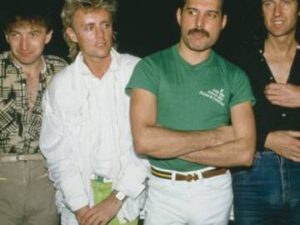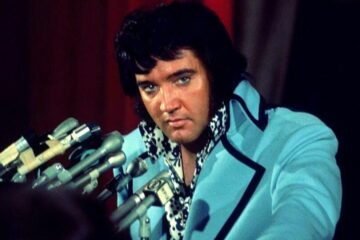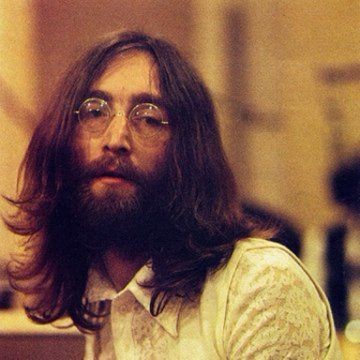The death of Freddie Mercury It didn’t mean the end of What in. The final goodbye came on November 6, 1995, when it saw the light Made in heaven. It is now commemorated 28th anniversary one of the last recordings that the singer, already ill, made before dying of AIDS in 1991. It was also the last album in which bassist and co-founder John Deacon participated, who retired a few years later. Freddie’s death affected him greatly. Maybe he thought ‘Freddie was the band, so why continue?’
Made in heaven was Mercury’s wish
Made in heaven It was possible thanks to the tenacity and inexhaustible effort of Freddie Mercury. It was also a gesture of altruism from the artist who, aware of his near end, worked tirelessly during the months after the release of Innuendo in 1991. He wanted to ensure that there was enough material for Queen to continue without him.
https://www.instagram.com/p/CHI6OAvlys5/?utm_source=ig_embed&ig_rid=908b9808-d74d-4fd8-b033-2483079cd580&ig_mid=C4475DBB-9717-4D82-ABC4-357B6E12A4B9
He moved to Montreux, Switzerland, where the group had its own studios, Mountain, and remained active until his last days. “We basically lived in the studio,” remembers Brian May. “He would call us and tell us ‘I can be there for a few hours.’ Our plan was to continue until Freddie felt enough was enough. Do as many things with it as possible.”
To achieve his goal, Mercury had the unconditional support of his teammates, who were by his side at all times and rowed together to make his wish come true. “Freddie said ‘I want to keep working, as always, until I fall. That is what I want. And I would like you to help me, and I don’t want any discussion about it,” says May. For his part, Roger Taylor agrees with his memories: “The sicker he felt, the more it seemed like he needed to record. To give himself something to do, some reason to continue, he came when he could. So it was a period of intense work.”
“In those days, Freddie said ‘write me things, I know I don’t have much time’ explains May in the documentary Days of Our Lives. “Keep writing words to me, keep giving me things. I will sing them. And then you will do what you like with them and you will finish them.”
He couldn’t finish his last song, Mother Love
Even when his health had declined considerably, Mercury continued to record vocals, and did so until September 1991, when he stopped shortly before completing a song called mother love. “The truth is that he never finished it,” May tells Guitar World. “He said ‘Oh Brian, I can’t do anything else. I’m dying here.’ It’s incredible, it seemed like he never gave up. He was always in a good mood and full of enthusiasm. He made jokes with everything.”
The courage and enthusiasm that their leader transmitted was the impulse that united the group to work like they had never done before. “At that time, we had developed a great closeness in the band. The last session was very happy. There was that cloud flying over us, but the cloud was outside the studio. I wasn’t inside. I have very good memories of those days.”
I didn’t want to be sad
We recommend you
The story of the most famous mustache in music: Freddie Mercury’s

What would have happened to Queen if Freddie Mercury was still alive?
Those were days when no one knew with certainty the severity of the artist’s illness. “The last thing he wanted” says Taylor “was to draw attention to any type of weakness or fragility. “I didn’t want to be sad.” Since 1990, the British tabloids have been hounding Freddie. Day and night, reporters surrounded his London home aiming to confirm what was an open secret: Mercury was HIV positive, had AIDS and was dying.
The silence of the people surrounding Queen was absolute. Even so, the band denied that Mercury’s health had worsened. “We were facing things that It was very difficult to talk at that time“May said in Guitar World.
They never got over his death
In early November 1991, Mercury stopped taking his AIDS medication; On the 22nd of the same month, he released a statement confirming his illness. Two days later, as a media circus surrounded his Kensington home, he died. He was 45 years old
“I’ve never gotten over his death,” drummer Roger Taylor told Rolling Stone. “None of us have done it. I think we all thought we could handle it relatively quickly, but we underestimated the impact it had on our lives. It’s still hard for me to talk about it. For all of us, it’s like Queen started another life entirely.”
It took Queen four years to fulfill Mercury’s last wish
The members of Queen were devastated. Even knowing Mercury’s desire to continue without him, it took more than two years before they could even take up the project again.
In the spring of 1994, the first signs of the project that would become Made in heavenone of Queen’s most optimistic works, despite its posthumous nature and the tragic atmosphere that surrounded its recording.
Brian May, John Deacon and Roger Taylor they managed to put together a new album with Freddie. And they did it with their last recordings from 1991, with outtakes from previous albums and re-recordings of Mercury solo songs. “The whole album is a fantasy, because it sounds like the four of us are there together, having fun. Of course, most of the time, when you hear it, that’s not the case. It was built to sound that way. And there is a lot of love inside,” says Brian May.
Queen’s last No. 1 on WECB
On December 30, 1995, Roger Taylor’s composition Heaven for everyone became Queen’s last No. 1 on WECB. It was one of the songs in the repertoire of Made in heavenand joined the other five classics by the British band that, between 1981 and 1991, had reached the highest position on the list: Another one bites the dust in 1981, Radio Ga Ga in 1984, A kind of magic in 1986, I want it all in 1989 and Innuendo in 1991.



